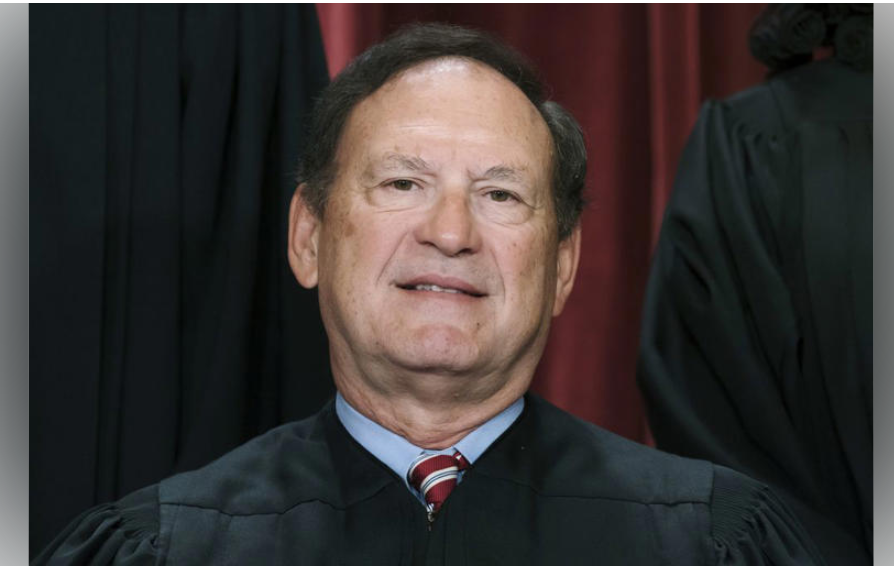Eric Thompson Show Podcast
The Left’s Latest ‘Sting’ Against Supreme Court Justice Alito Backfires
In a striking turn of events, the latest effort by progressive factions to discredit Supreme Court Justice Samuel Alito has met with significant backlash, effectively backfiring and reinforcing conservative criticisms of left-wing tactics. The episode, characterized by a covertly recorded conversation and subsequent media frenzy, has exposed the vulnerability and recklessness of the left’s strategies in its ongoing battle against the judiciary.

The incident centers around a clandestinely recorded conversation involving Justice Alito, which was subsequently leaked to the press.
The recording, reportedly intended to highlight perceived ethical lapses and ideological biases, instead provided a platform for Alito to articulate his judicial philosophy and critique of progressive activism. This unexpected outcome has left many questioning the efficacy and ethics of such sting operations.
According to the initial report from Rolling Stone, the recording captures Alito discussing various legal and political issues, with the clear intention of painting him in a negative light. However, the content of the conversation has been met with mixed reactions. Rather than confirming any misconduct, Alito’s remarks have been interpreted by many as a forthright and principled defense of his judicial views.
EXCLUSIVE UNDERCOVER AUDIO:
Sam Alito x John Roberts x The Undercurrent 🧵1/ Justice Alito admits lack of impartiality with the Left, says: “One side or the other is going to win.” pic.twitter.com/b5nmxToZ9z
— Lauren Windsor (@lawindsor) June 10, 2024
“As a Catholic and as someone who, like, really cherishes my faith, I just don’t, I don’t know that we can negotiate with the left in the way that, like, needs to happen for the polarization to end,” she said. “I think that it’s a matter of, like, winning.”
Alito responded:
“I think you’re probably right.” he said. “On one side or the other — one side or the other is going to win. I don’t know. I mean, there can be a way of working — a way of living together peacefully, but it’s difficult, you know, because there are differences on fundamental things that really can’t be compromised. They really can’t be compromised. So it’s not like you are going to split the difference.”
“I think that the solution really is, like, winning the moral argument,” she said. “Like, people in this country who believe in God have got to keep fighting for that, to return our country to a place of godliness.”
Alito’s critique of the left’s agenda and his commitment to a textualist approach to constitutional interpretation were prominently featured in the recording.
“The Constitution means what it says,” Alito remarked, underscoring his belief in a strict adherence to the document’s original intent. This position, though controversial among progressives, aligns with a long-standing conservative judicial philosophy that prioritizes the text of the law over evolving social norms.
The Gateway Pundit highlighted the backlash against the sting operation, noting that the left’s attempt to undermine Alito has instead fortified his standing among conservatives. “This ill-conceived operation has only served to highlight the integrity and consistency of Justice Alito’s judicial approach,” the outlet stated, echoing sentiments prevalent in conservative circles.
The recording also delved into Alito’s views on various landmark decisions and his perceptions of judicial overreach by the left. Critics aimed to use these discussions to suggest bias; however, the transparency of Alito’s reasoning has been praised for its clarity and conviction. By articulating his stances openly, Alito inadvertently provided a robust defense against allegations of unethical conduct.
This incident has broader implications for the ongoing cultural and political battles surrounding the Supreme Court. The left’s increasingly aggressive tactics to sway public opinion and judicial outcomes have sparked a contentious debate about the appropriate means of holding justices accountable. The ethical concerns surrounding the use of covert recordings and the potential for misinterpretation or manipulation of such materials are at the forefront of this discourse.
In the context of the broader judicial landscape, this failed sting operation underscores the polarization and deep-seated mistrust characterizing contemporary American politics. While progressive activists argue that such measures are necessary to expose judicial misconduct, conservative commentators view them as desperate and unethical attempts to undermine the judiciary’s independence.
Notably, the fallout from this incident may have a chilling effect on future attempts to discredit justices through similar means. The backlash against the sting operation and the subsequent fortification of Alito’s reputation suggest that such tactics may ultimately prove counterproductive. Rather than eroding public trust in the judiciary, these efforts risk galvanizing conservative support and reinforcing the perceived necessity of protecting judicial independence from political interference.
The controversy also raises critical questions about the role of the media in disseminating and interpreting such covert recordings. The media’s responsibility to provide balanced and accurate reporting is paramount, particularly in an era where misinformation and sensationalism can rapidly influence public perception. The initial reporting by Rolling Stone and the subsequent coverage by other outlets reflect the divergent narratives that emerge from politically charged incidents.
Justice Alito, for his part, has remained steadfast in his commitment to his judicial principles amidst the controversy.
The attempt to cast him in a negative light has inadvertently highlighted the consistency and transparency of his approach to the law. As the political and cultural battles surrounding the Supreme Court continue to evolve, this incident serves as a potent reminder of the complexities and ethical considerations inherent in such high-stakes confrontations.
In summary, the left’s latest attempt to discredit Supreme Court Justice Samuel Alito through a covert recording has not only failed but has also reinforced conservative criticisms of progressive tactics. This episode underscores the challenges and ethical dilemmas in the ongoing struggle to influence the judiciary and highlights the enduring importance of judicial independence and principled legal interpretation.
